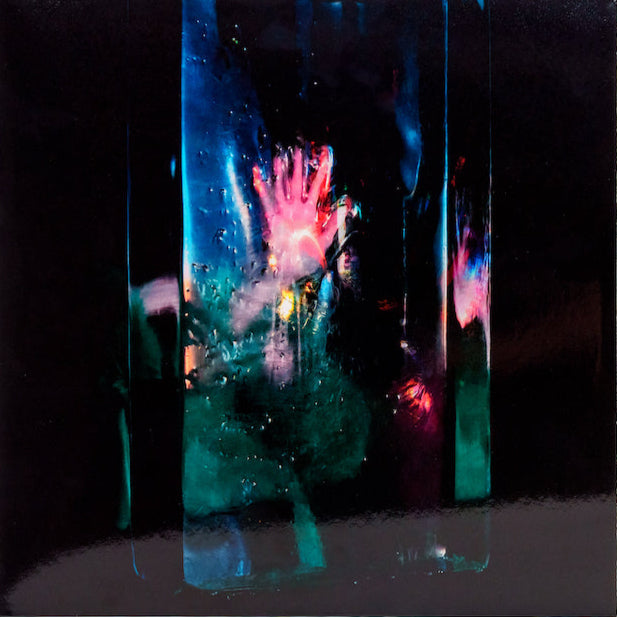
How Ahmad Jamal’s The Awakening became a hip hop sample goldmine
Nas, DJ Premier and Common all borrowed plaintive riffs from jazz pianist Ahmad Jamal’s seminal LP The Awakening. Here’s how one album came to define the sound of some of hip hop’s most iconic recordings.
Words: Jack Pepper
Over the course of two days in frosty Manhattan, early February 1970, Ahmad Jamal sat down to record a masterpiece. He can’t have known it at the time, but two decades later, the notes he laid down so elegantly would be reimagined on the same soil by some of NYC’s most revered hip hop producers.
Endlessly listenable its own right, The Awakening is lesser-known as a hip hop production essential. Very few full-lengths have given rise to beats of this calibre, the serenity of Jamal’s performance along with his ability to churn out hook after hook over just forty minutes of tape providing perfectly fertile ground for sample-hungry producers. Household East Coast lyricists Jeru The Damaja, Nas and Pete Rock all went on to construct an entirely fresh set of tracks from chopping up the same eternal recording.
Recorded on the cutting-edge label Impulse! with its eye-catching orange spine and luxuriously thick gatefold sleeve, The Awakening would have been instantly recognisable to anyone remotely aware of the musical heritage of the city.
DJ Premier, one half of Gang Starr, was the first to unearth the enormous sampling potential of the album’s title track. Through pitch-shifting and looping the opening bar on Jamal’s composition, Premier crafted the forward-thinking instrumental used halfway through Gang Starr’s first album No More Mr. Nice Guy. A pinch of overenthusiastic late eighties scratching and a bundle of surplus samples later and ‘DJ Premier In Deep Concentration’ was born.
It’s the freedom of Jamal’s playing on this track that kept producers coming back for more. The boldness and complexity of the opening scales make way for a period of simpler chord structures, identified by the fellow statesmen Shadez Of Brooklyn as the perfect foundation for their nostalgia-driven single ‘Change’. As an introspective tale of the rites of passage in New York during the seventies and eighties, the beauty of Jamal’s ethereal piano provides a fitting backdrop for the bleak story.
But what is it about this particular Ahmad Jamal record that makes it so sample rich? Crucially, the Pittsburgh-born musician was able to rely on two robust and unfaltering sidemen. With the exquisite timing of bassist Jamil Nasser and painstaking precision of veteran drummer Frank Gant – the latter having played alongside Donald Byrd and Yusef Lateef in the late fifties – what you hear is Jamal in his rawest form, liberated by the reliability of the trio setup.
Jamal’s characteristically sparse, dynamic playing on the record creates countless windows of opportunity for producers to sink their teeth into. No track demonstrates this quite like the modal masterclass ‘I Love Music’, the second on the album, which showcases the pianist’s ability to juggle rhythmic dexterity with long, drawn out passages of clustered harmonies.
The vacuums of space that Jamal shapes in ‘I Love Music’ were recognised by Pete Rock and recycled for Nas’s seminal mid-nineties hit ‘The World Is Yours’ – one of the standout tracks on his debut album Illmatic. Just as in the original, the melancholy piano loop paints a potent breeze into the MC’s measured verses as he repeatedly asks “who’s world is this?” Jamal makes the famous break seem as simple as sitting down at the piano; with his unhurried, tranquil style, the world is very much his own.
Two years later in 1996, Jeru The Damaja talked of money-motivated relationships over another, more complex loop from the same track entitled ‘Me Or The Papes’. The beat – yet another DJ Premier production – displays the other, more technical side of Jamal’s playing, interchangeable with his trademark block-like chord progressions.
But it wasn’t just Brooklyn and the Bronx where The Awakening regained recognition. Over on the south side of Chicago, a rapper by the name of Common Sense was on the verge of releasing a much-anticipated second album – Resurrection. The opening track of the same name featured a serene piano riff lifted straight from Jamal’s rendition of ‘Dolphin Dance’, a Herbie Hancock original given the trio treatment.
Playfully polysyllabic and craftily pun-laden, the rhythmic flow of Common’s bars gel seamlessly with Jamal’s reverberating piano phrases. ‘Resurrection’ brought the precision of Jamal’s playing back to life in the city where he began his musical career and cut his landmark At The Pershing recording decades earlier.
In his 1989 autobiography Miles Davis declared he was blown away by Jamal’s “concept of space, his lightness of touch [and] his understatement”. It’s for exactly this reason that The Awakening will continue to be so well referenced.









